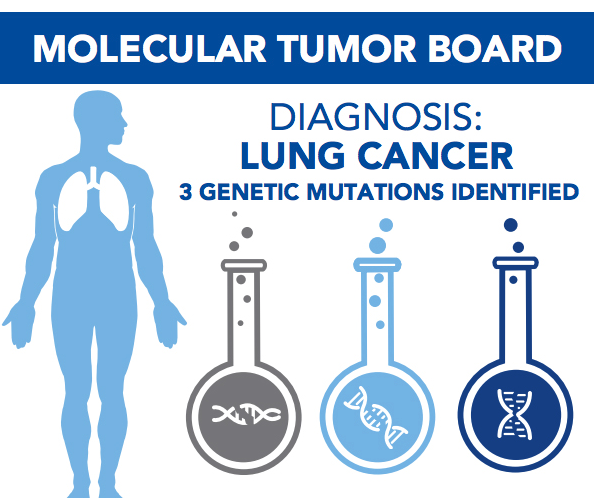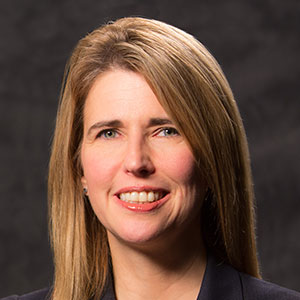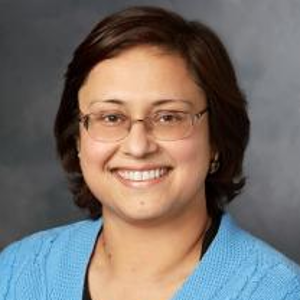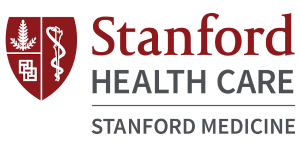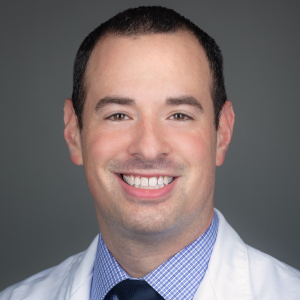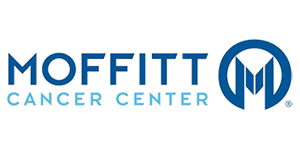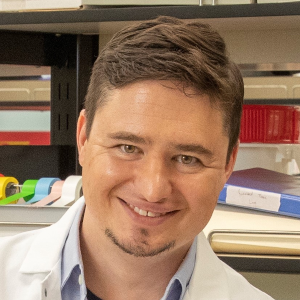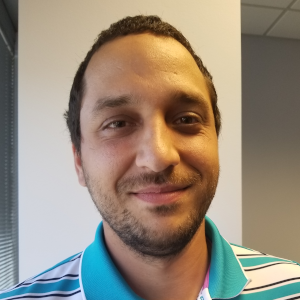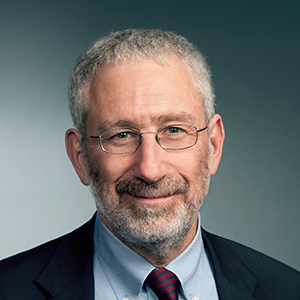The Molecular Tumor Board (MTB) was mostly established to facilitate the incorporation of molecular diagnostics into the consideration of appropriate therapies for patients with late stage cancer. Initially, much of the deliberation was focused on understanding the results of such testing, as reporting of results was limited in scope and frequently understandable only to cutting edge experts in the field. Improved, but still not perfect, reporting now exists, so discussion has shifted to prognostic and therapeutic considerations. That said, the collective experience with rare mutations and off label therapies is still such that collective wisdom is necessary. This brings up the issue of how MTBs collect, share, and preserve data within a specific MTB, and perhaps more importantly, how it might be shared amongst MTBs and beyond. While initial activity related to MTBs resided almost exclusively in large academic, and select community, medical centers, there is now significant effort in the commercial setting as well, with a number of intriguing efforts presently underway. Important and evolving issues, such as defining which patients are most likely to benefit from the efforts of a MTB, Virtual MTBs, and the generation of Real World Evidence, will be discussed.
Session Chair Profile
Biography
Dr. Anna Berry is the Deputy Director for Molecular Pathology and Genomics at the Swedish Cancer Institute, where she also serves as the Scientific Director of the Personalized Medicine Program. She is a graduate of the University of Nebraska Medical Center, and completed her post-graduate training at SUNY Upstate Medical University, the Medical College of Virginia, and the National Cancer Institute. Dr. Berry is Board Certified in Molecular Genetic Pathology, Cytopathology, Anatomic Pathology and Clinical Pathology, and served previously as the Director of Molecular Pathology and the Director of the Molecular Genetic Pathology fellowship training program at UCSF. Her clinical focus is making genomic technologies accessible to patients, and integrating genomic data into patient care. She serves on several national committees, including the Personalized Healthcare Committee of the College of American Pathologists, and participates in several national genomics task forces.
Speaker Profile
Biography
Dr. Kummar is Professor of Medicine and Director of the Phase I Clinical Research and Translational Oncology Programs at Stanford University. Prior to joining Stanford in 2015, Dr. Kummar served as the Head of Early Clinical Trials Development in the Office of the Director, Division of Cancer Treatment and Diagnosis, National Cancer Institute, Bethesda, Maryland. Her research interests focus on developing novel therapies for cancer, conducting pharmacokinetic and pharmacodynamic driven first-in-human trials. The clinical studies integrate genomics, imaging, and laboratory correlates into early phase trials. She serves on multiple national and international scientific committees and has published >125 papers in peer review journals.
Speaker Profile
Biography
Jens Rueter is the Medical Director for the Maine Cancer Genomics Initiative at The Jackson Laboratory (JAX) and the Associate Director for Regional Translational Partnerships at the JAX Cancer Center. He joined JAX for these positions in August 2016. He has overseen the implementation of a unique precision medicine program that has enrolled physicians and patients statewide across multiple healthcare systems and established statewide genomic tumor boards. The MCGI team is working with several national precision oncology leaders with the goal of individualizing cancer treatments for individual patients and improving their outcomes. Previously, Dr. Rueter was a hematologist/oncologist at EMMC Cancer Care and the Medical Director for EMMC Biobank and translational research in Brewer, Maine. After graduating from medical school in Berlin, Germany, Rueter completed his residency in internal medicine at Tulane University and fellowship training in hematology/oncology at the University of Pennsylvania.
Speaker Profile
Biography
As an attending on Moffitt’s Personalized Medicine Clinical Service Dr. Knepper’s clinical focus is on the utilization of genomic technologies to optimize treatment for patients with solid and hematologic malignancies. Dr. Knepper’s research focus is translating cancer genomics towards advancing the understanding of cancer treatment and biology, with a particular interest in rare malignancies. Prior to his current role Dr. Knepper was the inaugural Personalized Cancer Medicine Fellow at Moffitt Cancer Center and graduated from the University of North Carolina – Eshelman School of Pharmacy as a Joe Hollingsworth Scholar. At Moffitt, he has been integral in the creation and development of the molecular tumor board. He has also gained regulatory experience as an ORISE fellow at the US FDA, embedded with the Genomics and Targeted Therapy group and interacting with the Office of Hematology and Oncology Products. He has published in the Journal of Clinical Oncology, Blood, and Nature.
Speaker Profile
Biography
Dr. Kline is a pediatric neuro-oncologist who specializes in caring for children, adolescents, and young adults with brain and spinal cord tumors of all types. In addition to clinical care, Dr. Kline has extensive research experience, and is involved in numerous studies. She has a Master’s of Advanced Studies in Clinical Research and focuses on early phase clinical trials and developmental therapeutics for pediatric brain tumor patients. Dr. Kline’s other research interests include predictors of neurocognitive outcomes in pediatric brain tumor survivors and personalized and immunotherapy-based approaches for the treatment of brain tumors.
Speaker Profile
Biography
Dr. Piening’s laboratory focuses on bench-based and computational methods for generating and integrating extensive multi-omic profiling datasets with medical imaging and clinical parameters. He has applied this work to the study of immunotherapy responses in cancer as well as in several recent large-scale projects including the Human Microbiome Project and the NASA Twins Study. Prior to joining Providence, Dr. Piening performed his postdoctoral training in Mike Snyder’s laboratory at Stanford University and holds a PhD in Molecular and Cellular Biology from the University of Washington and Fred Hutchinson Cancer Research Center.
Speaker Profile
Biography
Dr. Snyder is a Neuro-Oncologist at the Hermelin Brain Tumor Center of Henry Ford Health System dedicated to improving access to innovative clinical trials and comprehensive multidisciplinary care. Dr. Snyder specializes in the care of people with cancer or tumors involving the nervous system. He is a leader in the brain, spine, and molecular tumor boards for the health system. Dr. Snyder is active in all phases of clinical trials as well as translational research, including: epigenomics, radiomics, and clinical data curation to drive real-world-evidence and precision medicine initiatives. Dr. Snyder has been recognized for his work addressing access to care barriers for the neuro-oncology community through virtual connectivity and a disease navigation virtual tumor board platform. First and foremost, Dr. Snyder is a committed advocate for his patients, their families, and the neuro-oncology community, driving patient-centric innovation and progress.
Speaker Profile
Biography
Dr. Zhang received his BS degree in biochemistry from Peking University in 1985. He went to the graduate school in the US under the CUSBEA program in 1986 and received his PhD degree in molecular biology from The University of Texas Graduate School of Biomedical Sciences. Dr. Zhang joined the faculty of The University of Texas M. D. Anderson Cancer Center in 1994 and rose to the rank of Full Professor in Pathology and Cancer Biology in 2006. Dr. Zhang served as the director of M. D. Anderson Cancer Center’s Cancer Genomics Core Laboratory since 1999. Dr. Zhang co-directed a Genome Data Analysis Center (GDAC) under the Cancer Genome Atlas (TCGA). Dr. Zhang is also the Director of the NFCR’s Center for Systems Informatics. In 2016, Dr. Zhang joined the Wake Forest Baptist Comprehensive Cancer Center to become the inaugural Hanes and Willis Family Professor in Cancer and the Director of the Center for Cancer Genomics and Precision Oncology. Dr. Zhang is also the Leader of the Cancer Genetics and Metabolism Program in the NCI-funded CCSG for the Wake Forest Baptist Comprehensive Cancer Center. Dr. Zhang has published more than 350 peer-reviewed papers. Dr. Zhang’s research has been supported by numerous grants from NCI/NIH, DOD, and several foundations including National Foundation for Cancer Research (NFCR), Goldhirsh Foundation, James S. McDonald Foundation, and Shriver Initiatives for Sarcoma. Dr. Zhang is a well sought after reviewer for federal funding agencies and he has reviewed more than 320 NIH grants. Dr. Zhang serves on the AACR’s China committee. Dr. Zhang is also the Chairman of the Board of Directors, US Chinese Anti-Cancer Association.
Speaker Profile
Biography
Dr. Afkhami is a Anatomic and clinical pathologist with subspecialties in Hematopathology and Molecular Genomic Pathology. She currently serves as a medical director of the clinical molecular diagnostic laboratory (CMDL), chair of the multidisciplinary Genomic Tumor Board, and member of the Oversight Precision Medicine Committee and the Toni Stephenson Lymphoma Center of the Beckman Research Institute at City of Hope (COH) Cancer Center. As a clinical scientist and physician her main interests lay in the dissection of the molecular mechanisms leading to the pathogenic events driving cancer transformation in solid tumors and hematopoietic malignancies. She supervise clinical, developmental, and regulatory activities of the CMDL and for past five years has developed and designed multiple complex molecular panels for solid tumors, hematologic cancers, and germline predisposition testing. She additionally serves as a member of multiple disease teams, including Melanoma, Head and Neck, Thyroid, Neuro-oncology, Leukemia, Lymphoma, Multiple Myeloma, Neuroendocrine, Precision Medicine, and Phase I therapeutic teams at COH. As a principal investigator of multiple studies in Thyroid cancers and Acute Myeloid leukemia, and Ph-Like Lymphoblastic leukemia many of her work have been presented in many national and international meetings.
Speaker Profile
Biography
James Cole is currently a Product Manager at GenomOncology, specializing in the design, development, and implementation of the GenomOncology Molecular Tumor Board Application. In his role, James applies GenomOncology's Precision Oncology Platform to creating a best-in-class model for conducting molecular tumor board meetings at cancer centers throughout the country. James' activities include collaborating with clients to implement precision oncology solutions that are designed to fit their unique needs. Through the successful implementation of several Molecular Tumor Board instances, James has garnered a wide-ranging perspective on the challenges related to successful implementations as well as the opportunities for enhancing the client experience. James has been working at GenomOncology for the last 5 years, and previously did his doctorate work at Cleveland State University in the synthesis and characterization of theranostic nanoparticles.
Speaker Profile
Biography
Ari VanderWalde is Director of Research at West Cancer Center and Research Institute in Memphis, Tennessee. An internationally recognized cancer researcher, Dr. VanderWalde holds a dual appointment with the University of Tennessee Health Science Center as Associate Vice Chancellor for Clinical Research and Associate Professor in Hematology/Oncology. His primary research is in melanoma, immunotherapy, and targeted therapies. In addition to the above duties, Dr. VanderWalde serves as the inaugural co-chair of the West Cancer Center Molecular Tumor Board, which has been in operation since 2014. In 2019, he was also appointed inaugural chair of the Virtual Molecular Tumor Board for Caris Life Sciences. He is the editor-in-chief of Elsevier’s PracticeUpdate Center of Excellence for Advanced Melanoma, and serves as the medical director for the Clinical Trials Network of Tennessee (CTN2) and senior medical director for George Clinical, an oncology based CRO.
Speaker Profile
Biography
For over 30 years Dr. Markman has been engaged in clinical research in the area of gynecologic malignancies. Dr. Markman has been the primary author or co-author on over 1,000 published peer-reviewed manuscripts, reviews, book chapters, editorials or abstracts, and has written, edited or co-edited 23 books on various topics in the management of malignant disease. In 2011, Dr. Markman received the American Society of Clinical Oncology (ASCO) Statesman Award, which recognizes individual members who have shown extraordinary volunteer service, dedication and commitment to ASCO, their hospital community and the patients they serve for at least 20 years. In May, 2018, Dr. Markman was named by OncLive® to an elite group of the 2018 Giants of Cancer Care® recognition program which celebrates pioneers, innovators and leaders who have made remarkable achievements in oncology research and clinical practice. Dr. Markman was selected in recognition of his contributions in gynecologic cancers.






